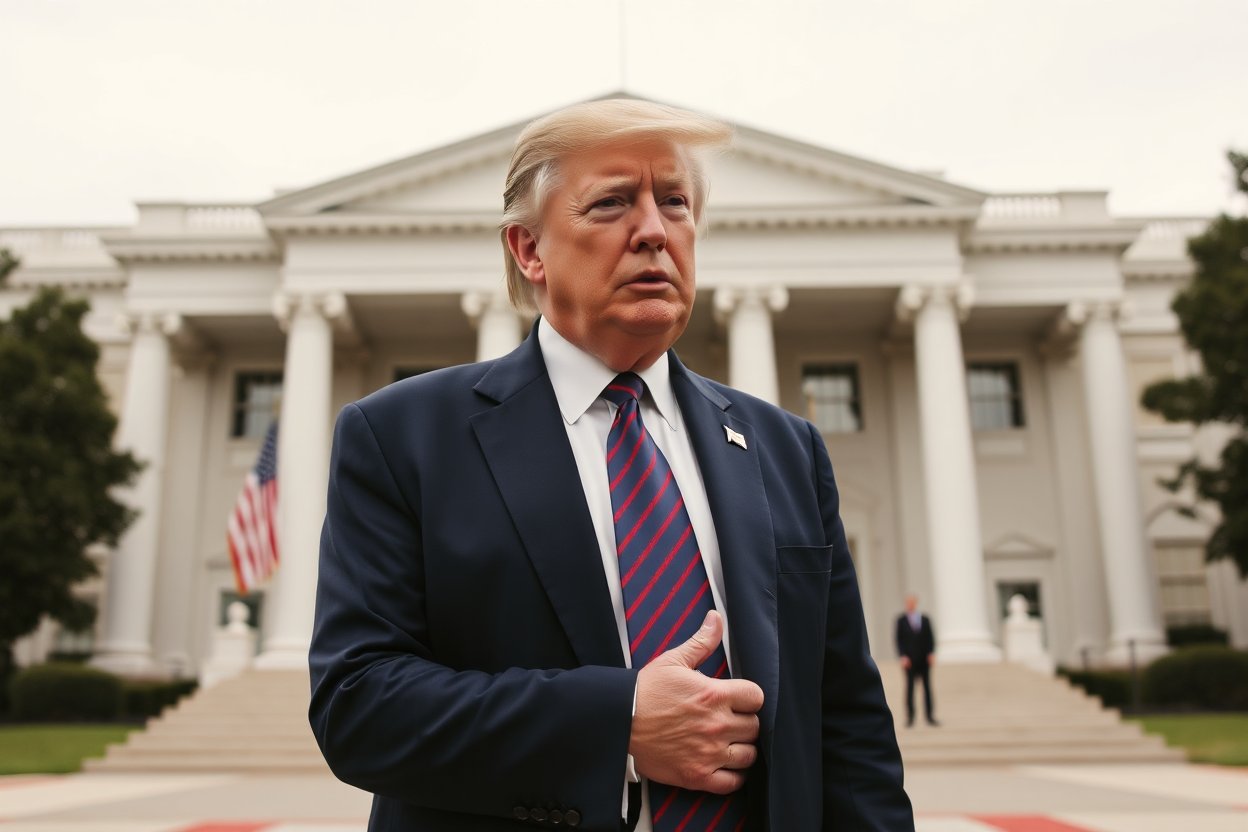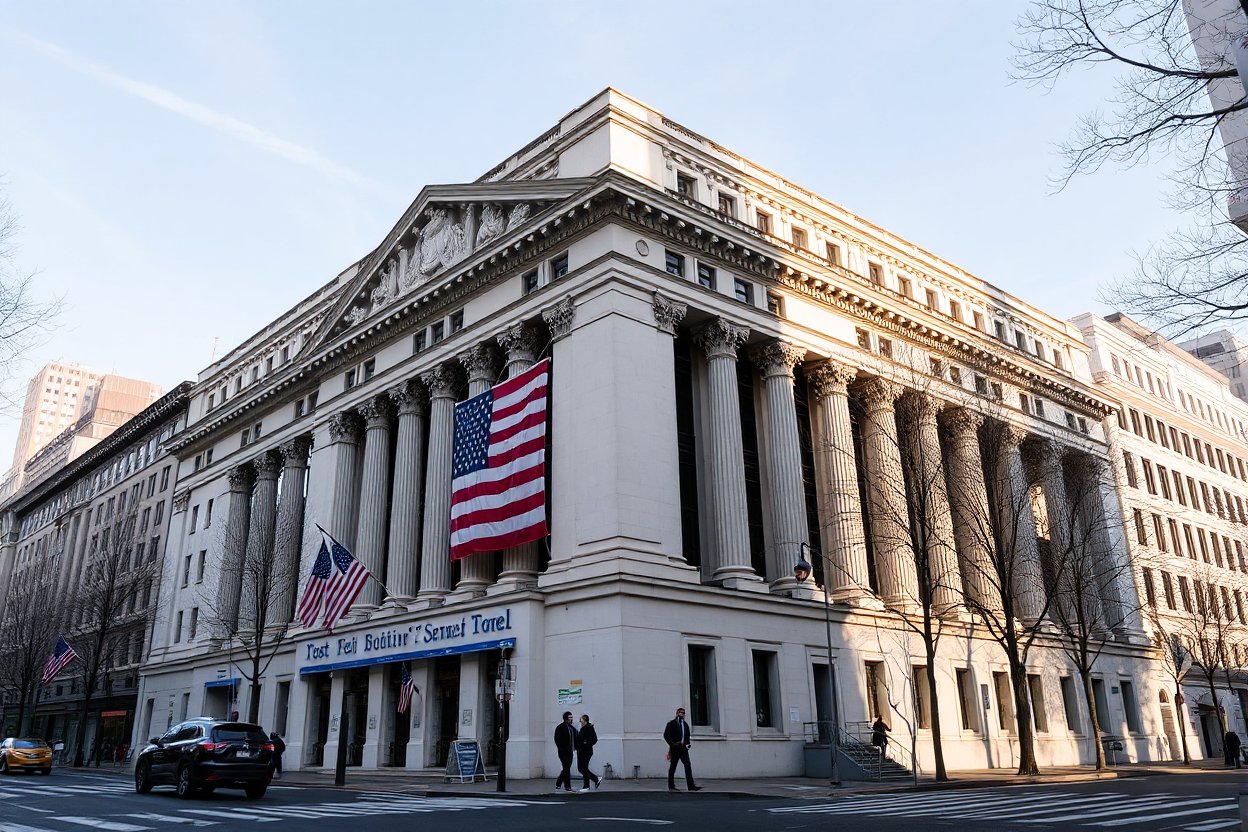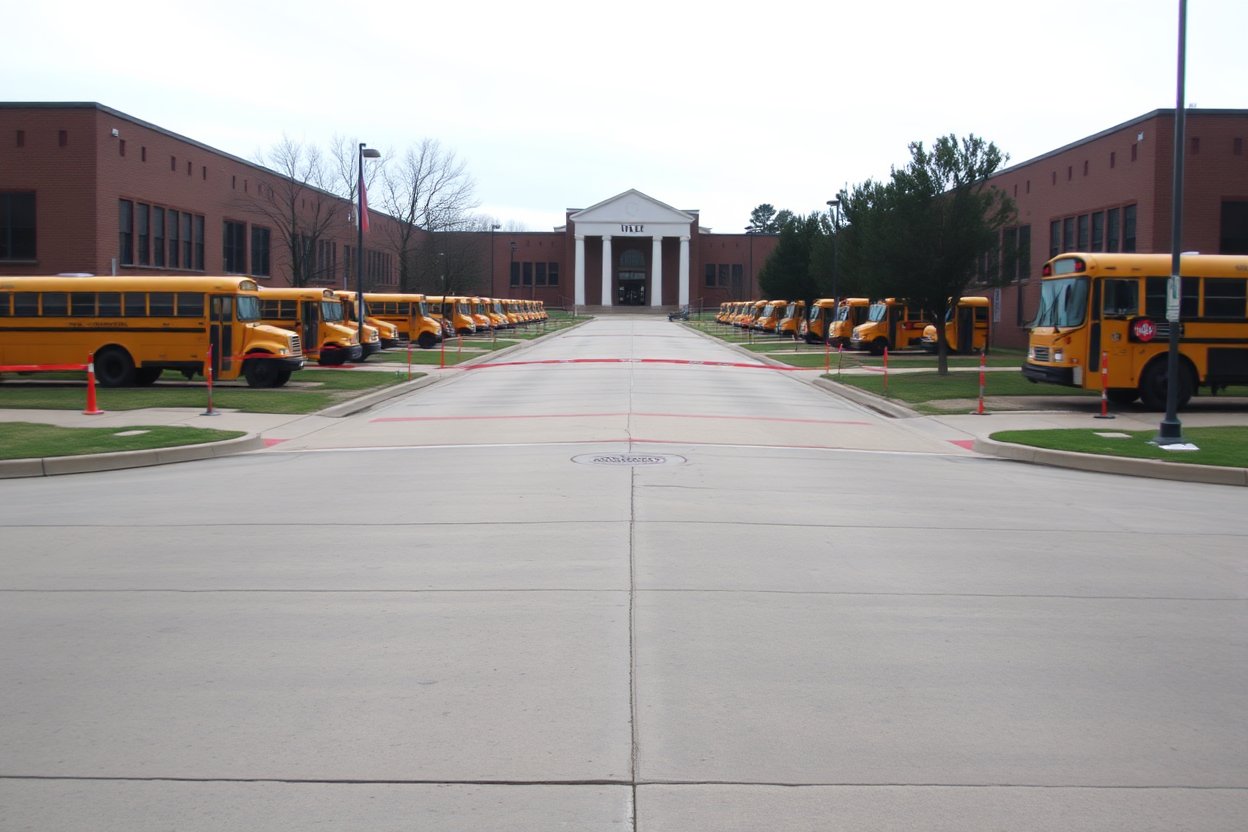Trump issued pardons to four activists who received criminal convictions
President Donald Trump provided pardons to four activists who received convictions during their blockade of the Sterling Heights abortion clinic.
Trump issued pardons to four activists who received criminal convictions for their part in the blockade of a Sterling Heights, Michigan, abortion clinic. Late Thursday’s announcement of pardons prompted renewed debates about abortion rights while also drawing attention to protest criminalization.
Highlights
The activists who staged the blockade in front of the Sterling Heights Women’s Health Center consisted of James Fletcher, Mary Collins, Rebecca Grant, and Michael Rivers. The protest required physical blocking of the clinic’s entrance and resulted in trespassing charges for all participants with additional disorderly conduct and FACE Act violations included in their arrest. According to the Freedom of Access to Clinic Entrances Act of 1994, it is illegal to block anyone seeking reproductive medical services through threats or, physical barriers or intimidation.
The announcement surprised observers because the case had sparked significant public opposition. In his statement about the activist group, Trump proclaimed these individuals were “passionate activists whose conduct stemmed from sincerely held convictions.” Through his statement, Trump labelled the governmental use of the FACE Act in this scenario as an improper attempt to limit free speech.
Reactions From Both Sides
The public reaction has split precisely in two. Right-to-life activists, along with conservative leaders, approved of Trump’s moves to support such people because they maintain the role of movement leaders. In an interview, Marjorie Dannenfelser, president of Susan B. Anthony Pro-Life America, praised the bravery of these individuals who protect unborn babies. President Trump receives praise from us for honouring their valuable efforts.
The pardons have triggered concern from both advocates and specialists for reproductive rights, who argue these actions will likely lead to more illegal activity at reproductive clinics. Nancy Northup, who serves as president of the Center for Reproductive Rights, warned about the hazardous effect of pardons because they encourage law violations for anti-abortion activism. Healthcare providers and their patients are protected from harassment and violence through the FACE Act. Undermining this legal protection establishes a case which frightens citizens deeply.
Legal scholars agree that though presidential pardons grant presidents broad authority, they seldom extend to cases where individuals have committed unmistakable legal violations. According to Harvard Law professor Alan Jenkins, the matter extends beyond politics because it remains a legal standing. These pardons risk the judicial system losing systemic authority when healthcare establishments restrict patient health access.
The 2020 Incident
A national anti-abortion organization directed its affiliate activists to conduct the Sterling Heights Women’s Health Center blockade in 2020. Police had to halt the clinic’s operations when protesters chained the entrance doors and barricaded the facility with substantial objects. The standoff between activists and law enforcement lasted several hours until federal and local authorities made arrests at the clinic’s location.
Members of the protest group were convicted at a federal trial in 2021. Prosecutors demonstrated that such measures resulted in unlawful behaviour that created dangerous conditions inside medical facilities for staff and patients. The legal team representing the activists argued that the protesters used their First Amendment rights to show their moral stand.
Political Implications
The presidential pardons will likely shape upcoming Republican Party politics while Trump positions for a potential run for the presidency in 2024. The pardons reinforce Trump’s want to retain evangelical Christian and pro-life voter backing, which represents a key portion of his political foundation.
Based on Laura Morrison’s political assessment, Trump pursues his core voting supporters through this pardon, according to Morrison. These executive actions challenge the Biden administration’s position on reproductive rights at the same time.
Democratic representatives immediately attacked the presidential absolutions that occurred. Senator Elizabeth Warren (D-MA) described the actions as “appalling” and accused Donald Trump of “undermining the rule of law to satisfy extremists.” According to Representative Alexandria Ocasio-Cortez (D-NY), the pardons show Trump’s dedication to supporting his political base even when it compromises public security standards.
A Broader Debate
The latest pardons from Donald Trump have triggered nationwide conversations about how to strike the right balance between First Amendment rights and women’s health access. A First Amendment defence of religious freedom protests vs reproductive healthcare access protections is central to this debate.
Dr. Emily Harper, a reproductive health specialist, declared, “Protest is a fundamental right.” When protests become disruptive enough to stop people from accessing their rights, they stop being protected free speech and become fundamental rights violations.
Abortion provider protection is in jeopardy because Trump’s recent decision-making action calls into doubt planned future efforts to target providers. The Supreme Court recently ended Roe v. Wade through its judicial ruling. The Supreme Court’s 2022 Wade ruling has made abortion rights the centrepiece of national political discourse while states create their abortion legislation.
Two variables retain elusive trajectories regarding abortion rights and campaigning regulations as the political and legal dementia following executive pardons continue to unfold. The current discussion demonstrates how profoundly Americans differ in their views about one of today’s most divisive social matters.


